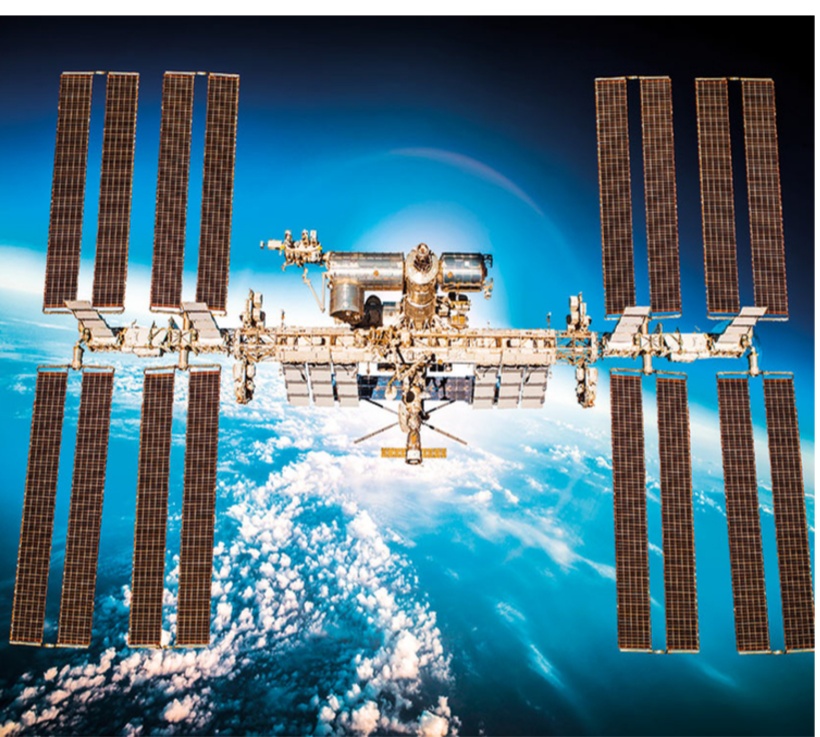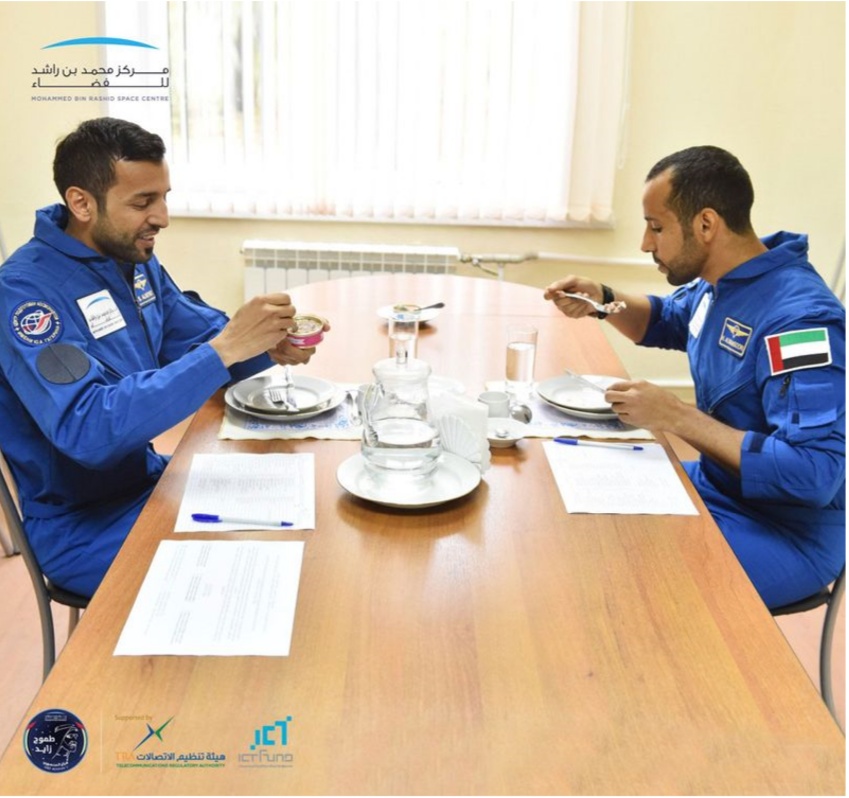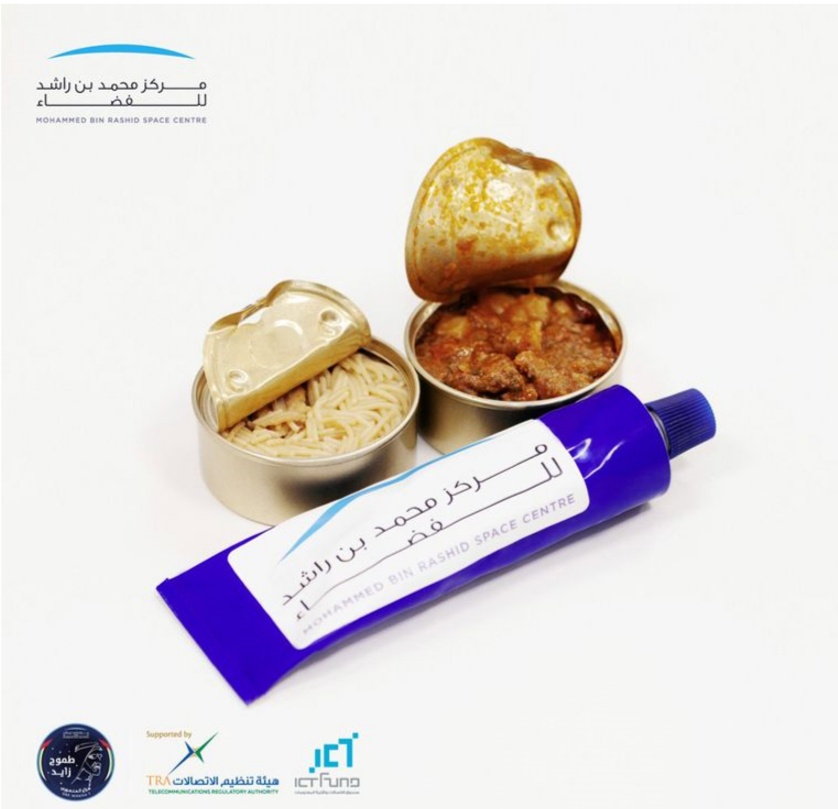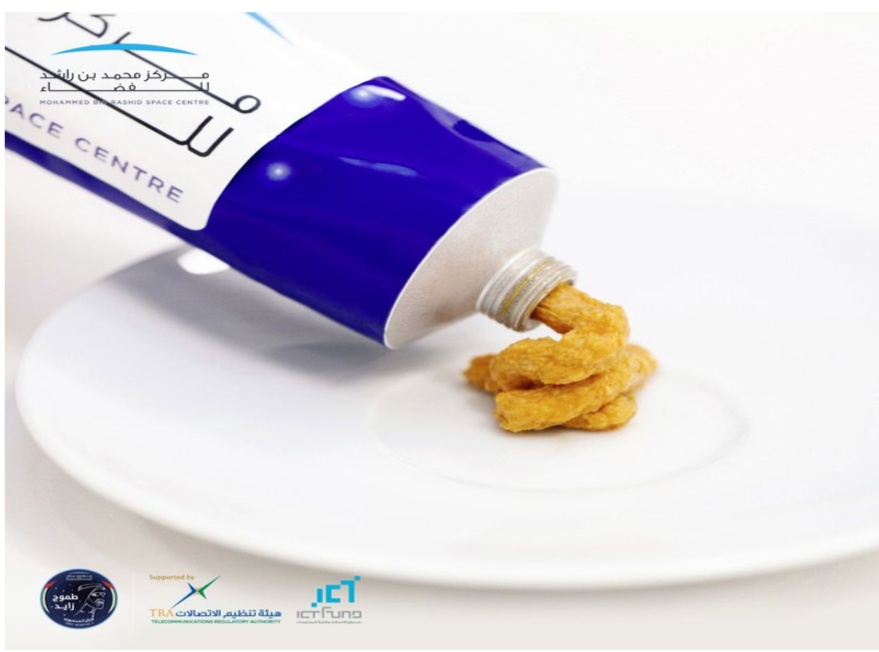Emirati Food To Be Served in Space
The Mohammed bin Rashid Space Centre (MBRSC) has announced that Hazzaa AlMansoori, the UAE’s first astronaut to travel to the International Space Station next month, will host a traditional Emirati food night at the ISS.
MBRSC oversees the UAE Astronaut Programme, which is part of the UAE National Space Programme, and aims to prepare the first Emirati astronaut corps to participate in global space exploration missions.
AlMansoori will be dressed in the traditional Emirati clothes, and will offer his fellow astronauts three Emirati foods – madrooba, saloona, and balaleet.
The event will be the first of its kind, with Gulf inspired cuisine being tasted in a non-gravitational environment, state news agency WAM reported. The traditional showcasing of Emirati food to travellers has just gone one step further. And this time, its going to be out of this world.
AlMansoori, the UAE’s main astronaut travelling to the ISS, and Sultan AlNeyadi, the UAE’s back-up astronaut, have spent up to two hours daily for a week to taste about 200 different types of food and evaluate each.
The Russian Space Food Laboratory company is responsible for preparing these meals for space.
“I’m honoured to be the first astronaut to host an Emirati night on board the ISS to promote the Emirati culture, which I am proud to belong to, and share some delicious Emirati food like madrooba, saloona, and balaleet, which I’m sure they will like,” said AlMansoori.
AlNeyadi added that the menu on the ISS includes appetisers such as soups and cheese, and the main course includes fish, chicken or beef, in addition to desserts and drinks such as tea and juices.
Meals prepared for space are usually placed in the form of paste in tubes, which should be directly consumed and cannot be heated, or in the form of canned food containing food in a solid or dried form, where water can be added to it and it can be heated in special equipment for five to seven minutes. The catering is provided by the Russian Space Food Laboratory company.
“The astronaut’s meals are prepared according to specific requirements to provide a balanced nutrition while ensuring that they are easy to carry, store, and use in a non-gravitational environment. These foods are processed at high temperatures to be stored for long periods,” said Al Mansoori.
Emirati astronaut will wear a kandora on board and serve traditional meals

The UAE’s first astronaut, Hazzaa Al Mansoori, is set to become the first Emirati to travel the International Space Station (ISS) on September 25 and in addition, will host the first Emirati food night in space.
“The event will be the first of its kind, and for the first time they would taste the Arab cuisine, especially the Khaleeji [Gulf] cuisine, in a non-gravitational environment,” announced the MBRSC.
Additionally, a daily menu will be prepared for Al Mansoori with the types of food that he selected during his training period at Star City, Russia. Al Mansoori, the UAE’s main astronaut travelling to the ISS, and Sultan Al Neyadi, the UAE’s back-up astronaut, had earlier spent between one and two hours daily for a week to taste about 200 different types of halal food and evaluate each.

Hazzaa Al Mansoori and Sultan Al Neyadi spent between one and two hours daily for a week to evaluate about 200 different types of halal food.

Madrooba, saloona, and balaleet will be served on the International Space Station.
Al Neyadi explained that the menu on the ISS includes appetizers such as soups and cheese, and the main course includes fish, chicken or beef, in addition to desserts and drinks such as tea and juices.

Meals prepared for space are usually placed in the form of paste in tubes, which should be directly consumed and cannot be heated, or in the form of canned food containing food in a solid or dried form, where water can be added to it and it can be heated in special equipment for five to seven minutes.




